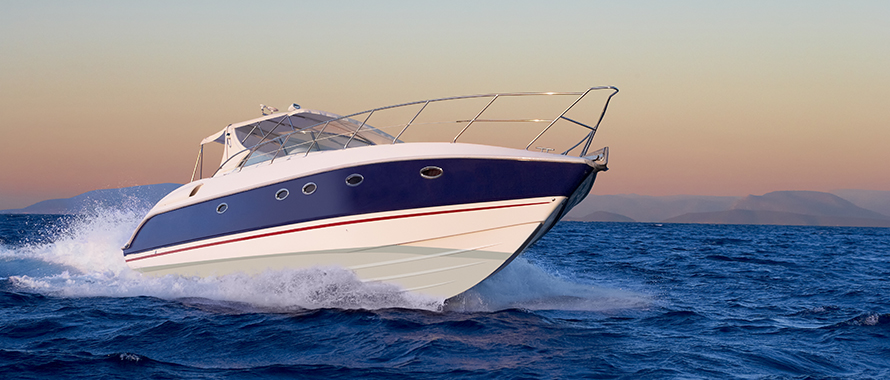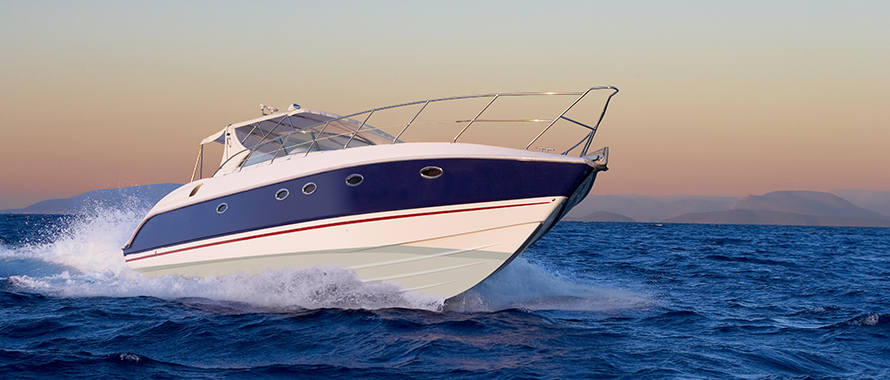
May 18 marks the beginning of National Safe Boating Week, a project of the National Safe Boating Council and the National Oceanic and Atmospheric Administration’s Weather Service. Set before Memorial Day, when boating season begins in earnest, the annual campaign provides free resources and education, seeking to raise public awareness of life-saving safety measures such as wearing life jackets and checking weather reports.
10 percent of American households own a boat and the most recent U.S. Coast Guard report included almost 12 million registered recreational vessels. Sales of freshwater fishing boats, personal watercraft, cruisers, and pontoon boats all increased in 2018 as boaters ventured into waterways across the country.
Owning and operating recreational watercraft does, however, carry significant risks, even when safety measures are taken. Passengers can suffer injuries and property can be damaged due to collision, capsizing, fire or weather-related accidents. Damaged boats are often expensive to repair; they can also leak toxins into the water, polluting waterways and incurring fines for the boat owner.
“When you think about the legal liability that can occur to people on your boat if there is a collision or a grounding and people are thrown about inside the boat—there are a lot of things that can happen on the water,” explained Thomas Conroy, Managing Director-Marine, Markel Personal Lines, Pewaukee, Wisconsin. “We would certainly recommend that owners are properly covered.”
Boating accidents are increasing in frequency and severity
Boating accidents are not uncommon: the most recent U.S. Coast Guard boating accident data shows that in 2017 recreational boaters were involved in 4,291 accidents, resulting in 658 deaths, 2,639 injuries, and approximately $46 million in property damage. Drowning accounted for 75 percent of fatalities and nearly 85 percent of drowning victims were not wearing life jackets.
Earlier this month Alabama saw its eighth fatal boating accident this year; other states are also reporting higher than expected fatalities in 2019. Last year, several states reported higher boating accident fatalities, including North Carolina, which had the highest number of fatal accidents since 1990, and Maryland, which saw a 167 percent increase in fatalities.
Exposures unique to boating call for specialized coverage
While most boating deaths are due to drowning, fire is also a major hazard, along with consequent marine pollution. This past January in Charlestown, Massachusetts three house boats were lost in a raging, fuel-driven fire that was difficult to control, despite 40 to 50 responding firefighters surrounding the blaze. Two of the three boats burned to the waterline, potentially leaking fuel and other toxins into Boston Harbor. The damages from the fire totaled $1 million, but thankfully there were no injuries or fatalities.
Unfortunately, this is a common scenario. Fires accounted for more than $15 million in damages to recreational boats in 2017, according to the U.S. Coast Guard, and a frequent aftereffect is pollutant leakage.
“Some insurers wrap pollution exposure in with third-party liability coverage,” Conroy said, noting that if a fire damages other boats or docks and also pollutes the water, those limits are unlikely to be enough. While many owners rely on their Homeowners Insurance policy to cover their watercraft, Conroy noted these policies may not cover pollution, a common marine risk. Recreational Marine Insurance policies can include applicable limits and coverage for accidental damage to other property caused by the owner’s watercraft as well as pollution.
Harsh weather conditions present additional concerns
Storms are always a concern for recreational boaters and appropriate Recreational Marine Insurance coverage includes weather events. “Your standard (Recreational Marine Insurance) policy may cover a thunderstorm or a wind/hail event,” noted Matthew Evans, Underwriting Manager, Personal Insurance & Marine, Burns & Wilcox, Detroit/Farmington Hills, Michigan. Evans recommends boat owners consult their policies and talk with insurance brokers and agents about possible exclusions. For boat owners who live in storm-prone areas or hurricane zones, ancillary coverage is also available for “named storms.”
As the effects of climate change spread, owners are seeking ways to protect their boats from extreme weather, both on the water and when docked. Last week the Savannah Yacht Club suffered major damage from a tornado, causing a boat hoist to crash into a dock house. In April, Marina Industries Association (MIA) launched its first extreme weather preparedness course to help marinas manage the effects of climate change.
“Your standard (Recreational Marine Insurance) policy may cover a thunderstorm or a wind/hail event.” – Matthew Evans, Burns & Wilcox
Recreational Marine Insurance policies including coverage for extreme weather exposures are available, but should be combined with careful planning, said Conroy. He encourages boat owners to think well in advance about how to manage an extreme weather situation. “Do not wait until the storm is approaching to think about what you are going to do with your boat, because if you do, it will be too late,” he advised.
Whether boat owners relocate their vessel to avoid storms or to enjoy another location, Evans suggested they first speak with their insurance agent, broker or underwriter before leaving their standard navigational area. “If they are going to take their boat down to Florida, they can work with their carrier to add on a single trip,” Evans pointed out. “The biggest thing is making sure that there is going to be coverage in place before you move your boat.”
Personal accountability and training are essential to safe boating
While Recreational Marine Insurance can cover medical bills if a boat owner or passenger is injured on or by a boat—preventing injuries is far preferable to suffering the consequences of being ill prepared. “If you have people on your boat for the first time, something as small as showing them where the life preservers are can be helpful,” Evans noted.
“Do not wait until the storm is approaching to think about what you are going to do with your boat, because if you do, it will be too late.” – Thomas Conroy, Markel Personal Lines
Implementing other safety precautions can also make a difference, Conroy added. “Any time (boat passengers are) going into the water, make sure you do a full head count of everyone on the boat prior to starting the engine,” he noted.
Even experienced boat owners’ safety skills need to be enhanced when upgrading to a larger boat. “If (a boat owner) is moving up significantly in either (watercraft) speed or size,” Conroy said, “it is important they have the appropriate skill set and competencies to operate the boat.”
Often a Recreational Marine Insurance carrier will require that owners or operators train for a specific amount of time in maintenance and navigation, working with a professional captain or trainer to ensure that they have the skills they need to be safe on the water. According to the 2017 Coast Guard study, in more than 80 percent of fatal boating accidents, the boat operator had no prior training.
Taking your boat out on the water can be one of life’s great pleasures, made all the more enjoyable by feeling secure and protected. “It really is important for people to take time and look for a policy that offers the limits and the coverages they desire based on their need to protect themselves,” Conroy said.
As with any coverage need, an insurance broker or agent must be consulted.
This information was provided by Burns & Wilcox, North America’s leading wholesale insurance broker and underwriting manager.
Learn more about Recreational Marine Insurance.
